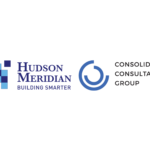Industry Insights: Project and Construction Management
Outline
Introduction
Project and construction management are critical to the successful execution of building and infrastructure projects. Effective management ensures that projects are completed on time, within budget, and to the required quality standards. This article explores the latest trends and innovations in project and construction management, focusing on how these developments are enhancing project outcomes.
Project Management Trends
Project management is evolving with new methodologies and tools that improve efficiency and effectiveness. Key trends include:
- Agile Project Management: Agile methodologies are becoming more popular, especially for projects requiring flexibility and rapid adaptation. Agile emphasizes iterative progress, collaboration, and responding to change.
- Project Management Software: Advanced project management software tools are being used to streamline project planning, tracking, and reporting. These tools offer features such as real-time collaboration, Gantt charts, and task management.
- Data-Driven Insights: Leveraging data analytics to gain insights into project performance, resource allocation, and potential risks is becoming increasingly common. Data-driven decision-making helps in optimizing project execution and achieving better results.
Construction Management Innovations
Innovation in construction management is transforming how projects are executed. Key innovations include:
- Building Information Modeling (BIM): BIM is a digital representation of a building's physical and functional characteristics. It enhances collaboration among project stakeholders, improves accuracy in design and construction, and facilitates better project coordination.
- Prefabrication and Modular Construction: Prefabrication and modular construction techniques involve assembling components of a building in a factory setting before transporting and assembling them on-site. These methods reduce construction time, minimize waste, and improve quality control.
- Drone Technology: Drones are used for site surveys, progress monitoring, and inspections. They provide real-time aerial views of construction sites, improving accuracy in project monitoring and reducing the need for manual inspections.
Risk Management
Effective risk management is crucial for minimizing potential issues and ensuring project success. Strategies include:
- Risk Assessment: Identifying and assessing potential risks at the outset of a project helps in developing mitigation strategies. Risk assessments should be regularly updated throughout the project lifecycle.
- Contingency Planning: Developing contingency plans for potential risks ensures that there are predefined actions to address issues if they arise. This approach helps in managing unforeseen challenges and maintaining project stability.
- Continuous Monitoring: Regularly monitoring risks and their impact on the project allows for timely intervention and adjustment of strategies as needed.
Quality Assurance
Ensuring quality in project and construction management involves:
- Quality Control Processes: Implementing rigorous quality control processes throughout the project ensures that work meets specified standards and requirements.
- Regular Inspections: Conducting regular inspections and audits helps in identifying and addressing quality issues early, preventing defects and ensuring compliance with project specifications.
- Stakeholder Feedback: Engaging with stakeholders and incorporating their feedback into the quality assurance process helps in aligning project outcomes with expectations and requirements.
Collaboration and Communication
Effective collaboration and communication are essential for successful project management. Key aspects include:
- Integrated Project Teams: Forming integrated project teams with representatives from various disciplines fosters collaboration and ensures that all perspectives are considered in decision-making.
- Clear Communication Channels: Establishing clear communication channels and protocols helps in coordinating activities, sharing information, and resolving issues efficiently.
- Regular Meetings: Conducting regular project meetings and status updates keeps all stakeholders informed and engaged, facilitating timely decision-making and problem-solving.
Future Trends
Future trends in project and construction management include:
- Advanced AI and Automation: The use of AI and automation will continue to grow, enhancing project planning, execution, and monitoring. AI-powered tools will provide predictive analytics and automate routine tasks.
- Increased Focus on Sustainability: There will be a greater emphasis on sustainable construction practices, including the use of eco-friendly materials, energy-efficient systems, and green building certifications.
- Digital Twins: Digital twins, which create virtual replicas of physical assets, will become more prevalent in project management. They enable real-time monitoring, simulation, and optimization of project performance.
Conclusion
Project and construction management are essential for delivering successful projects that meet objectives and exceed expectations. By embracing innovative practices, leveraging advanced technologies, and focusing on quality and risk management, project managers can achieve better outcomes and drive the industry forward.
Staying informed about the latest trends and adopting best practices will ensure that projects are executed efficiently, sustainably, and to the highest standards.
Frequently Asked Questions
Agile Project Management is a methodology that emphasizes flexibility, iterative progress, and collaboration. It involves breaking down projects into smaller tasks or sprints and continuously evaluating and adjusting based on feedback and changing requirements.
Building Information Modeling (BIM) improves construction management by providing a detailed, digital representation of a building. It enhances coordination among project stakeholders, reduces errors, and improves project efficiency by enabling better planning and visualization.
Key components of risk management in construction include risk identification, assessment, mitigation, contingency planning, and continuous monitoring. These components help in addressing potential issues and ensuring project stability.
Technology enhances project management through advanced software tools that facilitate planning, tracking, and reporting. Technologies such as AI, data analytics, and automation improve decision-making, optimize processes, and provide real-time insights into project performance.
Get in Touch
If you have any questions or need more information about our project and construction management services, feel free to contact us. Our team is ready to assist you with expert guidance and support for your projects.













